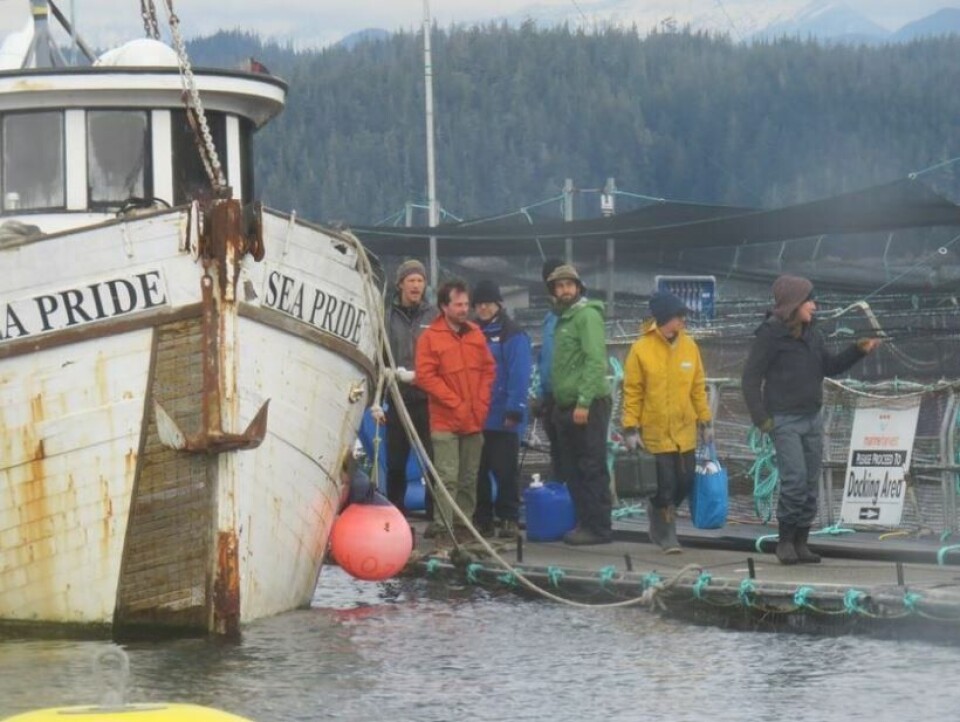
Protesters ordered off Canadian fish farm
First Nations protesters at a Marine Harvest fish farm in western Canada have been ordered to quit their camp on the site near Midsummer Island for 30 days while they prepare for a court date on Marine Harvest’s application for an injunction that would see them permanently removed from the site.
Protesters from the Musgamagw and Namgis First Nations have been occupying a shelter attached to the fish farm since early September, demanding that Marine Harvest shut down operations in their traditional territories.
At the direction of the Supreme Court of British Columbia, the protesters must now remove their structures from the farm.
'More time for legal action'
“This (adjournment) gives our hereditary and elected leadership more time to get legal action and negotiations organised to remove these farms from our waters legally and permanently,” said Musgamagw protester Molina Dawson.
The local First Nations have asked the BC government not to renew leases on farm sites in the Broughton Archipelago when they expire next June.
Marine Harvest has harvested salmon from the farm in recent weeks, but has delayed restocking because of safety concerns for the protesters.
'Care of our fish and employees'
“We will review the biological schedule of our fish as we raise a living, growing animal,” said Marine Harvest Canada’s managing director Vincent Erenst. “Until meaningful discussions are taking place to find long-term solutions, we will concentrate on continuing to take care of our fish and our employees.”
Erenst urged senior levels of government to find a solution to First Nations concerns about their rights and title.
“This important government to government discussion needs to occur so our business and many other businesses in the province can be given clarity about this process,” he said.
Agriculture Minister Lana Popham has indicated a willingness to hear First Nations concerns.
Relationships with 15 First Nations
Popham also sent a letter to Marine Harvest stating that the provincial government retains the right to end fish-farm tenures.
“We have also made a commitment to implement the recommendations of the Cohen Commission and that could affect farms in the Broughton Archipelago,” she said.
Marine Harvest employs about 600 people in BC and has working relationships with 15 First Nations, including seven First Nations-owned businesses.
Meanwhile, on the other side of the Canadian-US border, Wild Fish Conservancy has filed a citizen suit against salmon farmer Cooke under the Clean Water Act alleging the company was negligent in releasing the farmed Atlantic salmon into public waters.
Dead and gone
A Cooke salmon farm at Cypress Island in Puget Sound collapsed in August, allowing around 100,000 Atlantic salmon to escape. The fish, unused to fending for themselves, appear to have died, with none turning up in stream surveys by state biologists.
“Most people here presume they are dead and gone,” said Tony Meyer, spokesman for the Northwest Indian Fisheries Commission, representing the treaty tribes of western Washington, told the Seattle Times. “They were not feeding or anything; they were not going to make it. Of course miracles always happen, but mostly we figure they all died."
Nick Gayeski, fisheries scientist at the WFC, said the escaped fish pose a risk to depressed populations of wild native salmon and steelhead (trout).























































